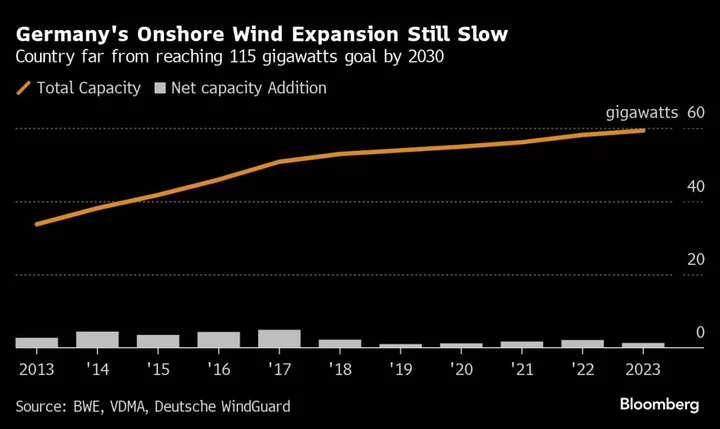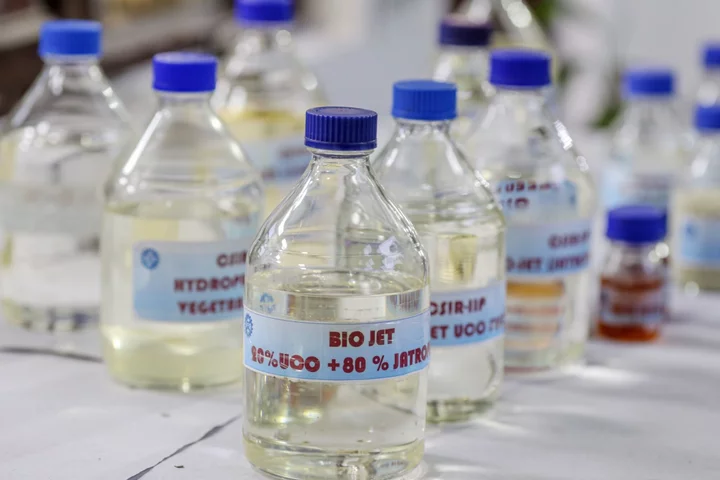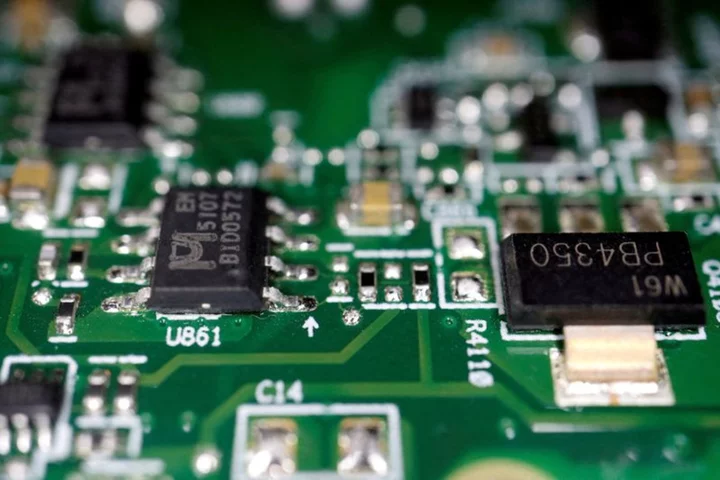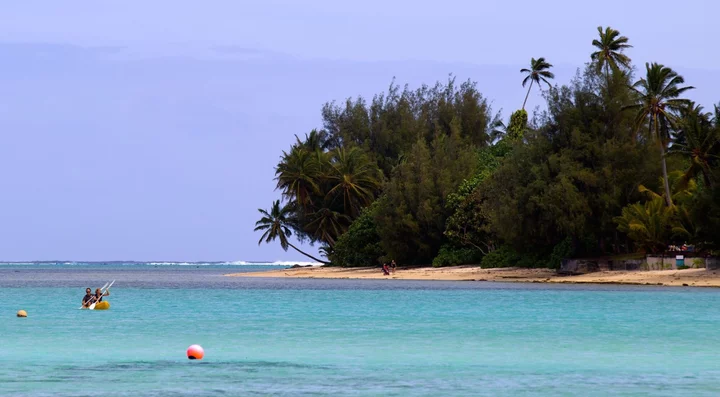Germany’s Economy Ministry is prepared to support Siemens Energy AG because it sees the company as a strategic asset that will play an important role in protecting energy supplies, according to people familiar with the ministry’s position.
The government wants to avoid repeating mistakes that effectively killed its solar industry more than a decade ago. That view is driving talks for €16 billion ($16.9 billion) in loan guarantees Siemens Energy was forced to seek after ballooning problems with faulty onshore wind turbines started spilling into the company’s profitable units, said the people, who discussed the matter on condition of anonymity.
Prior to any federal guarantees, the government is insisting that the company’s largest shareholder and former parent company, Siemens AG, step up, the people said. Siemens has reduced its stake as the wind-turbine losses mounted and indicated it didn’t want to provide further support.
The Economy Ministry, led by the Green party’s Robert Habeck, sees state backing as low risk, according to the people. Any decision to support the company, which still has a €110 billion order backlog, would still need the approval of the liberal Free Democrats, who control the Finance Ministry and have taken a hard line on spending and state interference in the economy. The two ministries are jointly negotiating with Siemens Energy.
Siemens Energy makes and develops key technologies for the green transition. Despite problems with certain onshore wind turbines, the company is a leading producer of high-efficiency gas turbines, offshore wind platforms and grid technology to transport renewable energy to consumers. The Economy Ministry views its work to be at the core of Germany’s energy policy.
“In terms of industrial policy, we are at a turning point, and it would be wrong to think that if you don’t face competition, we will benefit as an economy,” Habeck said Friday at an event in Ankara. “These technologies will be produced anyway and the question is whether Europe will have to import them.”
Germany is concerned that its solar industry experience could repeat itself. The country’s photovoltaic companies had been at the global forefront in the early 2000s thanks to strategic government policies and funding, with more than 150,000 employees in 2011. But with energy policies shifting, and subsidies drastically cut, annual solar addition figures plummeted, wiping out a range of startups and around 100,000 jobs.
Since then, Chinese competitors have taken the global lead: Today, around 90% of Europe’s solar components come from China. The government is now trying to rebuild a photovoltaic industry in Germany again, and has presented a strategy for the sector.
Europe has taken a more aggressive stance toward Chinese competition in recent months, launching an anti-subsidy probe into electric vehicles manufactured there. Despite concerns in various sectors that Beijing could retaliate, the EU wants to act now given the precedent in other subsidized industries such as solar panels.
In the wind industry, China is now home to nine of the world’s 15 largest turbine manufacturers. They cost about half the price of European turbines, according to industry data, in part because of generous Chinese government support.
At Siemens Energy, the problems are partly home grown. A fault in thousands of wind turbines has left the company with a repair bill of at least €1.6 billion ($1.7 billion) alongside an expected €4.5 billion net loss for the year. With Siemens withdrawing support, the company turned to the government for financial guarantees needed to win large-scale contracts. Investors on Thursday responded by wiping out more than a third of the company’s value, the second such move this year.
The speed of Germany’s energy transition accelerated after Russia’s invasion of Ukraine cut off gas supplies and forced the country to redefine its energy strategy in the immediate and longer term. The country phased out its last nuclear reactors this year and wants to reduce its heavy dependence on coal. To do so, it will need to rely heavily on renewables.
Wind, the second most important energy source after coal, will have to almost double to reach the government’s target of 80% clean power production by 2030. For onshore, that translates into about 27 new plants per week, but Germany has only added about five units a week in the first half of the year. Progress has stalled due to slow area designation and permitting, with local resistence against wind farms adding to the problem.
“The Federal Government is aware that Siemens Energy is a company that is relevant for the transformation of Germany as a business location,” a government spokesman said Friday at a regular press conference. He declined to comment further on the talks.
Siemens Energy declined to comment and Siemens couldn’t be immediately reached.
--With assistance from Wilfried Eckl-Dorna.
(Updates with EU probe in ninth paragraph.)
Author: Kamil Kowalcze, Arne Delfs and Petra Sorge









